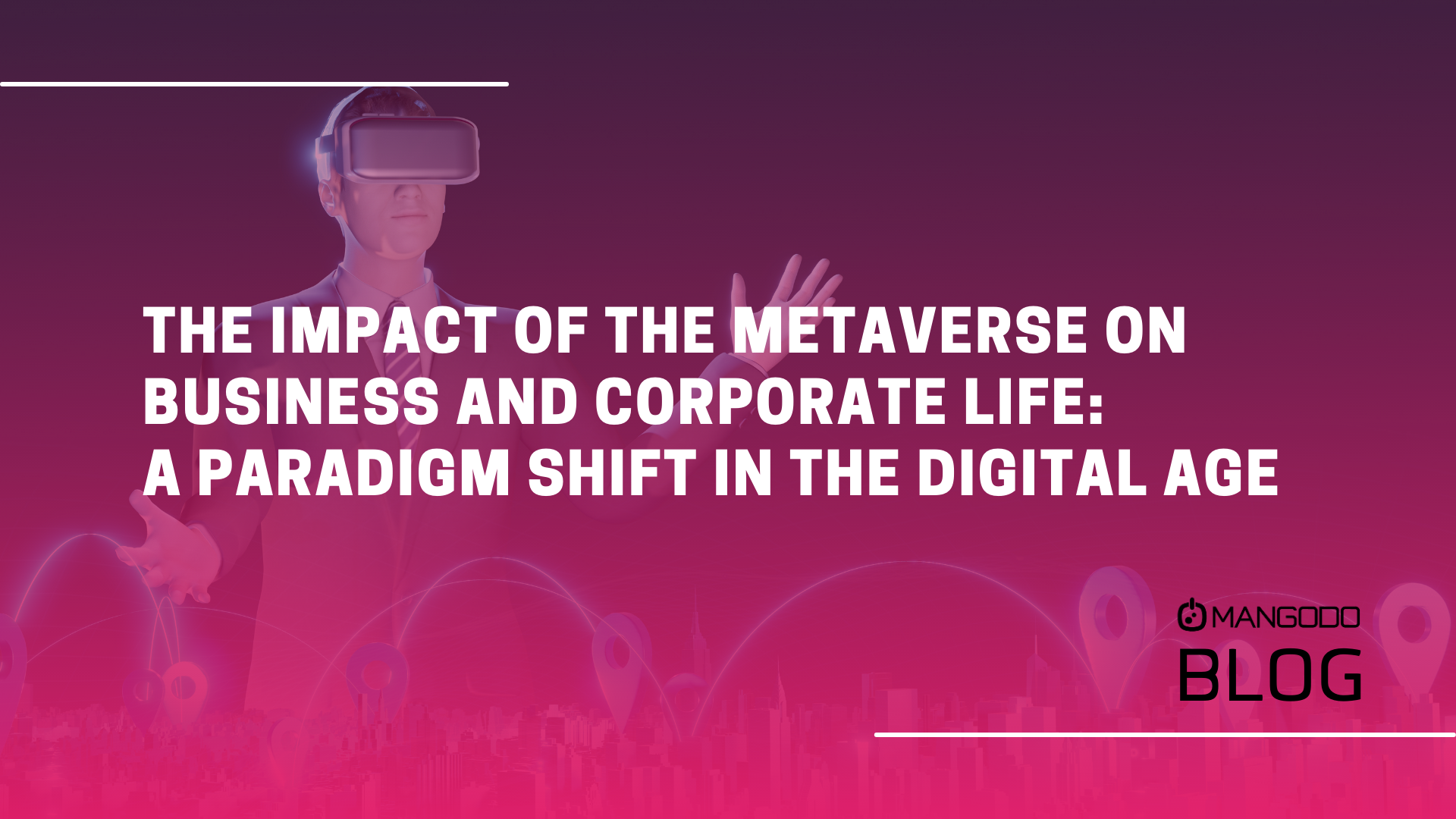The Impact of the Metaverse on Business and Corporate Life: A Paradigm Shift in the Digital Age
The concept of the metaverse, a virtual reality space where users can interact with a computer-generated environment and other users in real-time, has gained significant attention and popularity in recent years. As this immersive digital realm continues to evolve, its impact on business and corporate life is poised to be transformative. The metaverse has the potential to revolutionize the way companies operate, collaborate, connect with customers, and even redefine the traditional notion of physical workspaces. Let's explore the profound implications of the metaverse in the business world.
-
Enhanced Collaboration and Communication: The metaverse presents exciting opportunities for businesses to foster collaboration and communication among team members, regardless of their physical locations. Virtual meeting spaces within the metaverse can simulate real-life environments, enabling employees to interact, brainstorm, and collaborate in a more immersive and engaging manner. This can lead to increased productivity, efficient decision-making, and stronger team cohesion, as the metaverse transcends the limitations of physical distance and time zones.
-
Virtual Workspaces and Remote Work Revolution: The metaverse has the potential to reshape the concept of physical workspaces. With the increasing popularity of remote work, the metaverse can provide virtual office environments that replicate the functionalities of a traditional office. Employees can have virtual avatars, virtual desks, and engage in real-time interactions with colleagues, recreating the social dynamics and serendipitous encounters that are often associated with physical workplaces. This blurring of physical and virtual boundaries can enhance the flexibility, work-life balance, and overall satisfaction of remote workers.
-
Enhanced Customer Engagement: The metaverse offers businesses unique opportunities to engage with customers in immersive and interactive ways. Companies can create virtual storefronts or showrooms, allowing customers to explore products or services in a simulated environment. Virtual reality experiences can enable customers to visualize products before making a purchase, try virtual prototypes, or even participate in immersive brand experiences. This level of engagement has the potential to deepen customer relationships, increase brand loyalty, and drive sales.
-
Virtual Events and Conferences: The metaverse can revolutionize the way businesses organize and participate in events and conferences. Virtual spaces within the metaverse can host large-scale gatherings, trade shows, or industry conferences, allowing participants from around the world to attend without the constraints of physical travel. Virtual conferences can include interactive presentations, networking opportunities, and even virtual exhibitions. This not only reduces costs and environmental impact but also increases accessibility and inclusivity, as individuals with physical limitations or travel restrictions can still participate.
-
Digital Asset Ownership and Economy: The metaverse is built upon the concept of digital assets, such as virtual real estate, virtual goods, and virtual currencies. These assets can be bought, sold, and traded within the metaverse, creating a new form of digital economy. Businesses can explore opportunities to create and monetize digital assets, such as virtual products, accessories, or experiences, contributing to the growth of the metaverse ecosystem and potentially generating new revenue streams.
-
Data-driven Insights and Personalization: The metaverse generates vast amounts of data as users interact within its digital realm. Businesses can leverage this data to gain valuable insights into user behaviors, preferences, and trends. This data-driven approach enables businesses to personalize offerings, tailor marketing strategies, and improve customer experiences. The metaverse can act as a living laboratory, providing a wealth of information that can drive innovation and inform strategic decision-making.
-
Ethical and Regulatory Considerations: As the metaverse expands, it raises important ethical and regulatory considerations. Privacy, security, intellectual property rights, and fair competition are some of the challenges that need to be addressed. Companies must navigate these issues to ensure the responsible and ethical use of the metaverse while fostering trust among users and stakeholders.
The metaverse represents a paradigm shift in the digital age, revolutionizing the way businesses operate and interact with customers. It offers enhanced collaboration, virtual workspaces, immersive customer engagement, virtual events, a digital asset economy, data-driven insights, and personalization. While the metaverse presents immense opportunities, it also brings ethical and regulatory challenges that need to be carefully addressed. Embracing the potential of the metaverse can position businesses at the forefront of innovation, reimagining corporate life and unlocking new possibilities for growth and success.
